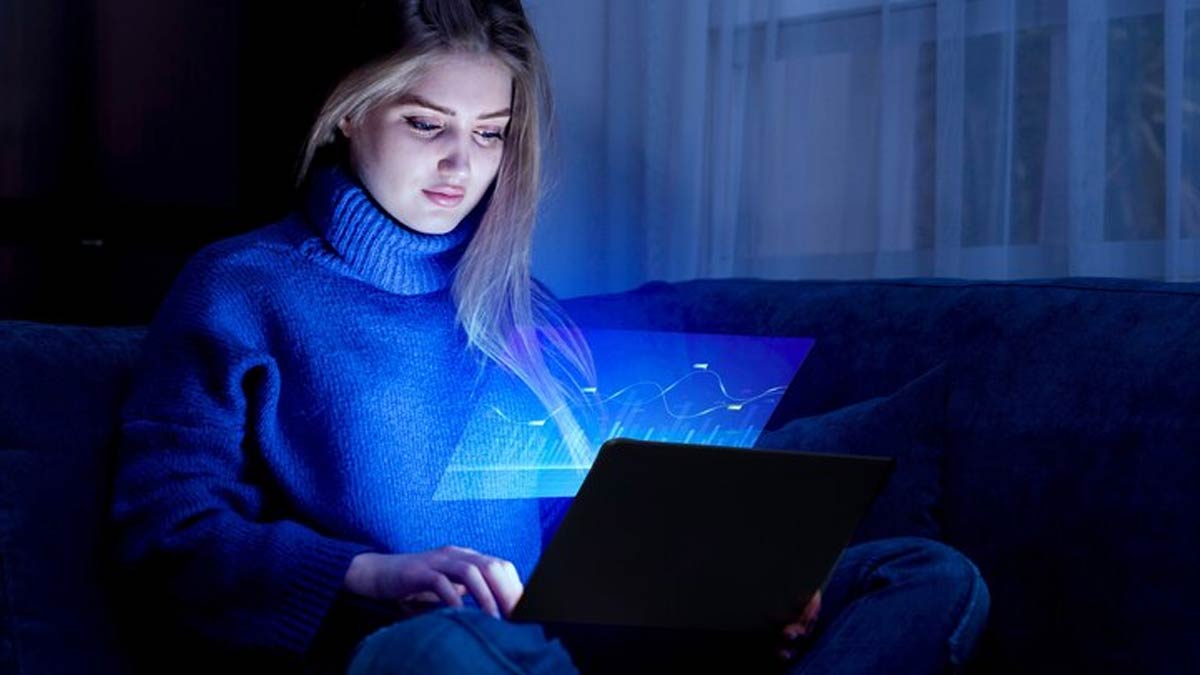
Are you hooked on your laptop, mobile, and television screen for a long duration of time? If yes, you should know that these devices emit blue light which can hamper your eye health. This light can lead to the development of eye health conditions and cause circadian rhythm disruption. We spoke to our expert Dr Rishi Raj Borah, Country Director - Orbis (India), who explained the impact of blue light on eye health and how to deal with it.
Table of Content:-
What Is Blue Light?

Blue light is a type of light that is emitted by digital screens, such as those on smartphones, tablets, computers and televisions. It is also found in natural sunlight. “While blue light is beneficial during the day, as it helps regulate our sleep-wake cycle, exposure to too much blue light can have negative effects on our eye health”, added Dr Borah.
Impact Of Blue Light On Eye Health

“One of the primary concerns with blue light is its ability to penetrate deep into the eye. It reaches the retina, the inner membrane lining the back of the eyeball, which is essential for vision”, said Dr Borah. Over time, this exposure can lead to damage to the cells in the retina. This can contribute to the development of Age-Related Macular Degeneration (AMD), which is a leading cause of vision loss in older adults.
Furthermore, blue light can result in computer vision syndrome, commonly referred to as digital eye strain. This condition is characterised by symptoms, such as dry eyes, headaches and blurred vision, which can occur after prolonged use of digital screens.
Also Read: Diabetes And Eye Damage: Expert Lists Ayurvedic Tips To Manage Eye Damage Due To High Blood Sugar
How To Protect Your Eyes From Blue Light?
You should follow these measures to protect your eyes from the harmful effects of blue light, as listed by the expert:
- Limit Screen Time: One of the most effective ways to reduce your exposure to blue light is to limit your screen time. You should try to take breaks from digital devices every 20 minutes. According to the American Academy Of Ophthalmology, to safeguard your eyes from strain, adhere to the '20-20-20; rule: look at an object 20 feet away for 20 seconds every 20 minutes.
- Use Blue Light Filters: Many devices now offer blue light filters that can reduce the amount of blue light emitted by your screen. These filters can be particularly helpful in the evening, as exposure to blue light at night can disrupt your sleep.
- Adjust Screen Settings: In addition to using blue light filters, you can modify the settings on your devices to decrease the blue light emission. It is also advisable to adjust the screen brightness, avoiding extremely dim and bright light, as both put strain on the eyes.
- Blink More: When using digital screens, the frequency of blinking per minute is reduced. Here, making a conscious effort to fully open and close the eyes can help keep the eyes moisturised. When your eyes feel dry, you can also use artificial tears to rehydrate them.
- Get Regular Eye Exams: It is important to get regular eye exams to monitor your eye health and catch any potential issues early.
Also Read: Pollution Can Cause Dry Eyes: Here's How to Protect Your Eyes
Bottomline
Dr Borah concluded, “While blue light is a natural part of the light spectrum, too much exposure to digital devices can have negative effects on your eye health. By taking steps to limit your exposure to blue light and protect your eyes, you can help reduce your risk of developing eye conditions, such as AMD and digital eye strain.”
[Disclaimer: This article contains information provided by an expert and is for informational purposes only. Hence, we advise you to consult your expert if you are facing any eye issues to get the necessary treatment.]
Also watch this video
How we keep this article up to date:
We work with experts and keep a close eye on the latest in health and wellness. Whenever there is a new research or helpful information, we update our articles with accurate and useful advice.
Current Version
